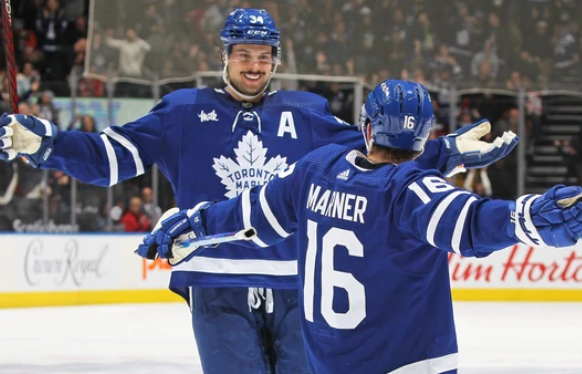On Wednesday night, Matthews made his last appearance of this incredible season on TNT, which airs nationally in the US, and he unquestionably left his calling card on display for everyone to see.
His two goals—and he would have scored three more if the NHL didn’t have its absurd offside challenge rules—were not the reason for the enthusiastic applause from the between-period panel and game broadcasters.
It was his game’s perfection. It was the minor details that are hardly spoken sufficiently. It was his ability to defend. What made him stand out was his ability to win puck fights and handle the puck. It was his idea. His game is not entirely calculable statistically.
That is a big part of hockey’s appeal. Even though there are more data accessible than ever before, a lot of what Matthews does during the course of a game and night is neither monitored or explained by them.
In 1993, there were 14 players who scored more than 50 goals, and two of them were rookie Teemu Selanne and Alexander Mogilny, who scored more than 70 goals.
In the past ten NHL seasons, there have been 14 players who have scored 50 goals, five of whom have been Alexander Ovechkin. For this reason, the chase for 70 is all the more amazing and unique.
The notion that Matthews could reach 70 goals this season is astonishing. He had scored 60 when he was named the Hart Trophy winner for most valuable player two years ago.
Assuming he stays healthy, he is expected to surpass the 60-goal mark this season. He is currently showcasing the best and most well-rounded hockey of his career, despite the slim chances of winning the MVP title this year.
In the 107-year history of the Maple Leafs franchise, no player had ever scored more than 54 goals in a single season before Matthews joined the team. His MVP season saw him break that record with 60 goals. Now, he is on track to hit around or even exceed 70 goals, in what appears to be a less significant part of the schedule for the Leafs in terms of standings.
As Matthews continues to make his mark on the team, he is surpassing legends like Mats Sundin, Doug Gilmour, Dave Keon, Frank Mahovlich, and Darryl Sittler, solidifying his place as the greatest regular-season player in Toronto’s history.
